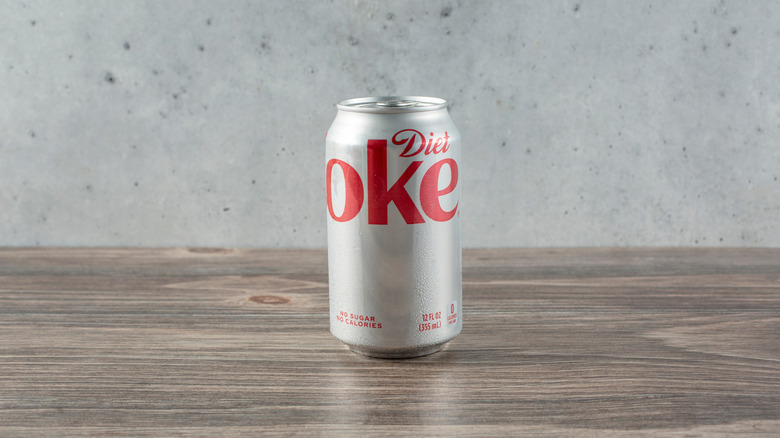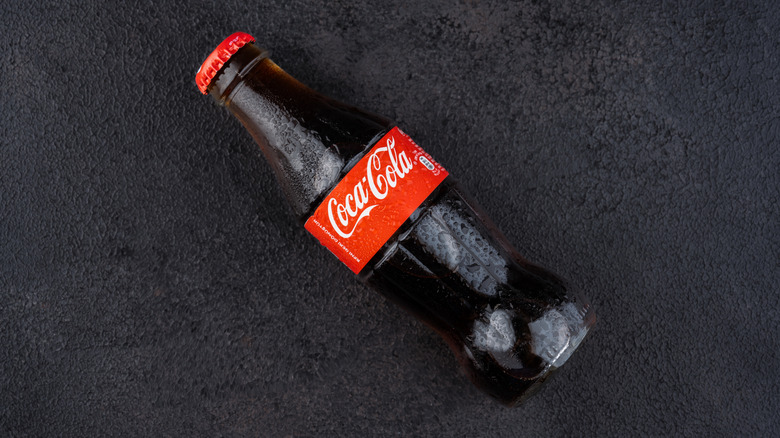How Much Caffeine Is In Diet Coke And Why Is It More Than Regular Coke?
While New Coke was a discontinued '80s flop, Coca-Cola and Diet Coke are still cornerstones of the global beverage market. Almost 2 billion servings of Coke products are consumed every day, all around the world, and it would stand to reason that a large number of those servings come from the flagship sodas that gave the company its name. Most cola-drinking consumers have a strong preference between regular soda and diet soda, and Coke is no exception. You aren't imagining the fact that regular Coke and Diet Coke taste different (although McDonald's Coke always seems to taste good, no matter what!). The variation in flavor actually has much to do with the difference in caffeine content between the two sodas.
According to Coca-Cola itself, regular Coke has 34 mg of caffeine in a 12-ounce can, while Diet Coke contains 46 mg in the same-sized portion. The difference isn't accidental — Diet Coke has a smidge of extra caffeine to give the soda its slightly bitter edge over the sweetness of regular Coke. Caffeine, as a substance, has a pronounced bitterness and has been said to make consumers' throats tingle.
It seems that a little extra bitterness in Diet Coke is a feature, not a bug. It's now a critical component of the taste profile, which you as a soda consumer either appreciate or don't. It's important to note, however, that even with a few milligrams more caffeine, there is not a significant difference in the caffeine content of Diet Coke and regular Coke compared to other caffeine-containing drinks.
Neither Coke nor Diet Coke has all that much caffeine
In the grand scheme of things, 34 mg versus 46 mg of caffeine is probably inconsequential. By comparison, a 12-ounce cup of coffee can have upwards of 140 mg of caffeine, which is over three times what's in a can of Diet Coke. The energy drinks with the most caffeine, like Celcius, Bang, and Rockstar, can pack 300 mg of caffeine per can, depending on the specific variety, which blows mere soda out of the water. Even Mountain Dew Zero Sugar, a rival product that's regarded as having a "lot" of caffeine, has 68 mg.
As far as caffeinated drinks go, the amount in either Diet Coke or regular Coke just isn't that significant. In case you were wondering, Coke Zero, which, like Diet Coke, has no calories, has the same amount of caffeine per can as regular Coke: 32 mg. If you are sensitive to caffeine, you can indulge in either Caffeine-Free Coke or Diet Coke, which cut it out entirely.
The Mayo Clinic states that most healthy adults can safely handle up to 400 mg of caffeine a day, which amounts to a lot of Coke or Diet Coke! Too much caffeine can make you jittery or anxious and might lead to problems sleeping. Luckily, drinking a bit of soda, even if it's on a daily basis, is unlikely to supply you with too much caffeine.

